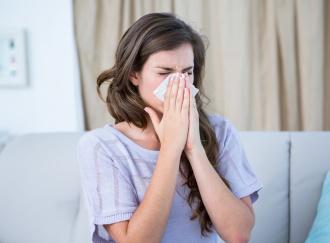Save yourself from poor air quality in St. Louis
It’s that time of the year again. Plants and trees are sprouting as they do during this season. However, those sprouting plants bring with them a very annoying side effect: pollen. The wrong amount of pollen can put a damper on any plans you might have if you have allergies. So you come up with an alternative plan and decide to stay indoors until allergy season ends.
Unfortunately, that might not keep you safe either. While air conditioning systems have filters in them, not all filters are made to trap pollen. You’ll only be setting yourself up for failure by not having the right equipment to keep your allergies in check.
Luckily, there are a ton of ways to make sure you stay allergy-free during the season, and a lot of them involve proper care and maintenance of your air conditioning system. Follow these steps and you’ll be able to enjoy this time of year almost as if you’re allergy-free.
1. Air Filter Replacement
As mentioned before, it is important to make sure you have the right air filter installed into your air conditioning system to make sure you’re being protected from pollen. During routine air conditioner maintenance or air conditioning repair, the air filter might be neglected or replaced by another filter that isn’t the best.
If you’re looking for A/C contractors in St. Louis, for instance, it would be in your best interest to contact us here at Meyer Heating & Air and inform us of your allergy needs. That way, the proper air filter will be installed for you.
2. Try to avoid paper filters
At first sight, paper filters seem like a good fit for catching many particles in your A/C system. What you might not know is that they’re used to catching bigger particles like dust that might clump into bigger groupings. Smaller particle objects, such as bacteria and pollen, can sneak through paper filters with relative ease.
A better alternative is to use HEPA (high-energy particle air) filters. HEPA filters are made of packed glass fibers rather than paper. They can trap everything from pollen to smoke, keeping your air even cleaner and keeping out any allergens that might get to you.
3. Replace filters often
How often you need to change your filters depends on a multitude of factors. One of the most important things to keep in mind is that not every HVAC is made the same.
During routine HVAC maintenance, it is a good idea to ask your repairman how often your filters should be replaced. You should also let them know if you have any allergies to pollen, dust, or smoke. This information may lead to them recommending more frequent air filter replacement, and they might even inform you of a different type of filter or HVAC to use if your allergies are severe enough. Usually, HVAC customers aren’t aware of how often filters should be replaced, so learn and become familiar with your air filter replacement schedule.
Some people are more sensitive to certain airborne particles. If you’re finding it difficult to escape the pollutants that irritate you, talk to our experts who may be able to offer a specific solution.
4. The filter might not be the problem
Even if you change out your filters properly and use the right filters, that might not keep allergens from getting into your house through your air conditioning unit. There can be a serious buildup of dust and allergens sitting in your HVAC right now that will eventually get cycled through your home daily.
If you notice any issues with your HVAC unit, schedule an appointment for HVAC repair as soon as you can. The last thing you want to do is focus too much on the filters and still be affected by the old allergens stuck in your machine.
5. Clean your ducts
Another service Meyer Heating & Air offers is duct cleaning. Even if your air conditioning system and air filters are in good shape, you want to always make sure your air ducts are clean and unclogged. This is especially true if you live in a home that is a few years old or more.
Unkept air ducts house mold and mildew, and that is not something you want contaminating the air you breathe. This can make symptoms worse when coupled with any existing issues you might have with allergies.
As part of your air conditioner maintenance, make sure you get your ducts inspected and cleaned extensively to avoid any avoidable breathing problems you may have because of allergies.



